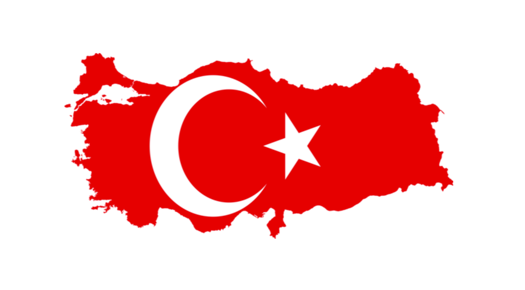
Turkish Prime Minister Ahmet Davutoglu recently said that the country’s new constitution would feature the principle of secularism. Refusing to debate over Turkey’s secular and democratic traits, Davutoglu decided to voice his stance a day after another important member of the ruling Justice and Development Party (AKP) demanded that secularism be obliterated from the existing constitution.
In his speech on April 27, Davutoglu said, “Secularism will feature in the new constitution we draft as a principle that guarantees citizens' freedom of religion and faith and that ensures the state is an equal distance from all faith groups.”
Parliamentary speaker Ismail Kahraman—who is supposed to be overseeing the draft charter of Turkey’s new constitution—said the country’s population is Muslim and so its constitution should also be religious in nature.
“We are a Muslim country... Secularism cannot feature in the new constitution,” he had said on Monday.
He later retracted his comments, saying they were personal.
Kemal Kilicdaroglu of Republican People’s Party (CHP), the government’s main opposition, went on to condemn Kahraman for his comments.
“The chaos that reigns in the Middle East is the product of ways of thinking that, like you, make religion an instrument of politics,” he tweeted. “Secularism exists so everyone can practice their religion freely, Mr Kahraman!”
Turkey happens to be a member of the North Atlantic Treaty Organization (NATO) and has been aspiring to join the European Union (EU), both of which consider Turkey to be a successful model of secular democracy in the Muslim world. However, critics have expressed fear that the modern state may gradually be losing its secular foundations, with opposition parties voicing how the new constitution could place too much power in the hands of President Recep Tayyip Erdogan, who has gone on record to say an executive presidency needs to replace the current parliamentary system in Turkey.
Secularism versus Islamism has been among the more sensitive political issues in Turkish society despite the country’s constitution disavowing any state religion since the 1920s.
Secularists believe this trait of the Turkish constitution is what empowered the country to be embraced by the West, gradually transforming itself as a cornerstone of Turkey’s national identity. They stress that since Islamists started gaining power under the presidency of Erdogan, the balance has inevitably been affected, thus causing the country’s Muslim population to demand their constitution reflects their religious beliefs.
In a country that is mostly at peace, where both sides of the religious spectrum continue to coexist in harmony, an issue such as this can very well be debated upon in a rational manner. But Turkey’s population happens to be so polarized—so divided due to the distrust between supporters and detractors of the government—that the same topic has managed to spark fear among citizens. While one side believes this to be a reflection of the country’s Muslim-majority vote bank, the other contends this is nothing more than an attempt by an Islamist ruler to reshape Turkey.
Justice and Development Party (which happens to have Islamist roots) has been trying to replace the existing constitution, which dates back to a military coup in 1980 and promotes no religion. Even though the government has lifted bans on women wearing headscarves in schools and civil services, it has also restricted the sale of alcohol and attempted to ban co-ed dorms at state universities. It has promised that the country’s new constitution would adhere to the European Union’s standards for human rights.
Headed by Davutoglu, Justice and Development Party holds as many as 317 seats of the total 550 in parliament. In order to submit its draft constitution for a referendum, the party would require as many as 330 votes, which means it would have to win over lawmakers from other parties as well.
Photo Credits: Wikimedia Commons
